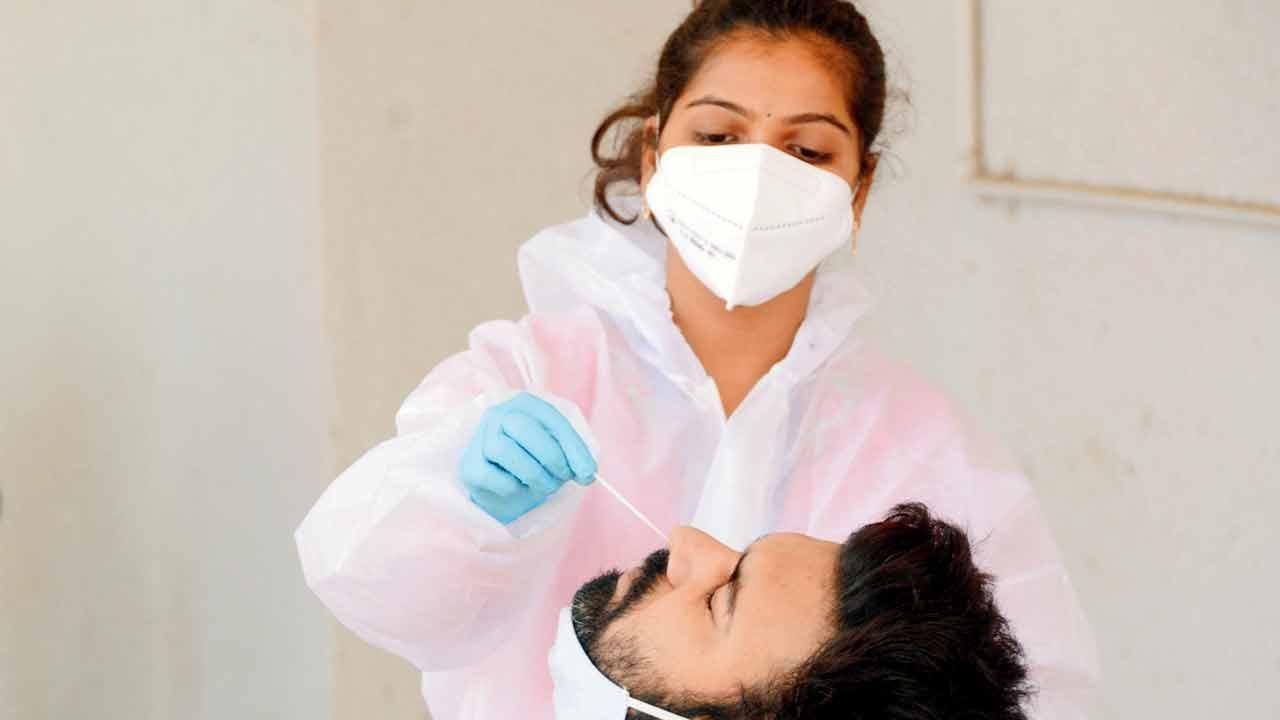As the world still grapples with the spread of the deadly virus, here's a look at some interesting facts about COVID-19

COVID-19 testing in Mumbai. Pic: Satej Shinde
It's been a year since the World Health Organisation (WHO) declared COVID-19 as a pandemic and India imposed a coronavirus lockdown on March 22, 2020. During the lockdown, new words such as quarantine, social distancing, asymptomatic and comorbidity became a part of our daily vocabulary. We also learned a lot about the COVID-19 virus during the lockdown.
As the world still grapples with the spread of the deadly virus, here's a look at some interesting facts about COVID-19
What is COVID-19?
According to World Health Organisation (WHO) COVID-19 is caused by a new coronavirus called SARS-CoV-2. WHO first learned of this new virus in December 2019 after cluster of cases were reported in Wuhan province of China.
ADVERTISEMENT
Which tests are used to detect COVID-19?
Two most common tests to detect COVID–19 infection are RT-PCR test and antigen test.
A Polymerase chain reaction test (PCR) is a molecular test used to determine if you are infected by SARS-CoV-2 infection. In this test, a swab is used to collect samples from the nose and throat of the person getting tested. These tests can be done in a clinic, hospital and authorised health centres. You can also get your samples collected at home and send it to the lab for analysis. Generally it takes 2-3 days to get the test results but sometimes results can be obtained in 24 hours.
WHO says, Rapid antigen tests (sometimes known as a rapid diagnostic test – RDT) detect viral proteins (known as antigens). Samples are collected from the nose and/or throat with a swab. These tests are cheaper than PCR and will offer results more quickly, although they are generally less accurate
(Source: https://www.who.int/emergencies/diseases/novel-coronavirus-2019/question-and-answers-hub/q-a-detail/coronavirus-disease-covid-19)
What are the classic sypmtoms of COVID-19?
Some of the symptoms of COVID-19 include fever, breathing trouble, dry cough, fatigue and loss of smell and taste. Symptoms begin one to fourteen days after exposure to the virus.
Who are most vulnerable to COVID-19?
-Senior citizens over 60
-Health workers who come directly in contact with infected people
-People with underlying health conditions such as the highly diabetics, people with heart ailments and patients with respiratory ailments are vulnerable to the virus
What is asymptomatic case of COVID-19?
An asymptomatic case refers to any individual who has contracted the COVID-19 virus but do not have the symptoms
What do we know about COVID-19 vaccines in India?
The drug regulatory authority in January 2021, formally approved the 'emergency use' of two COVID-19 vaccines in India: the AstraZeneca vaccine, manufactured by the Serum Institute of India and Covaxin made by a Hyderabad-based firm Bharat Biotech International.
What does vaccine efficacy mean?
Vaccine efficacy usually refers to the performance of the vaccine in a clinical trial. In a controlled environment, scientists calculate efficacy by observing the percentage reduction of the disease in a group of volunteers who have been vaccinated as compared to a group which has not been vaccinated.
For example - what does is mean when we say that a COVID-19 vaccine has an efficacy rate of 90 per cent? It means that if you were exposed to COVID-19, the probability of you getting infected would be 90 per cent less if you have been vaccinated as compared to a person who has not been vaccinated
 Subscribe today by clicking the link and stay updated with the latest news!" Click here!
Subscribe today by clicking the link and stay updated with the latest news!" Click here!






